Special Report
These States Have the Least Restrictive Gun Laws
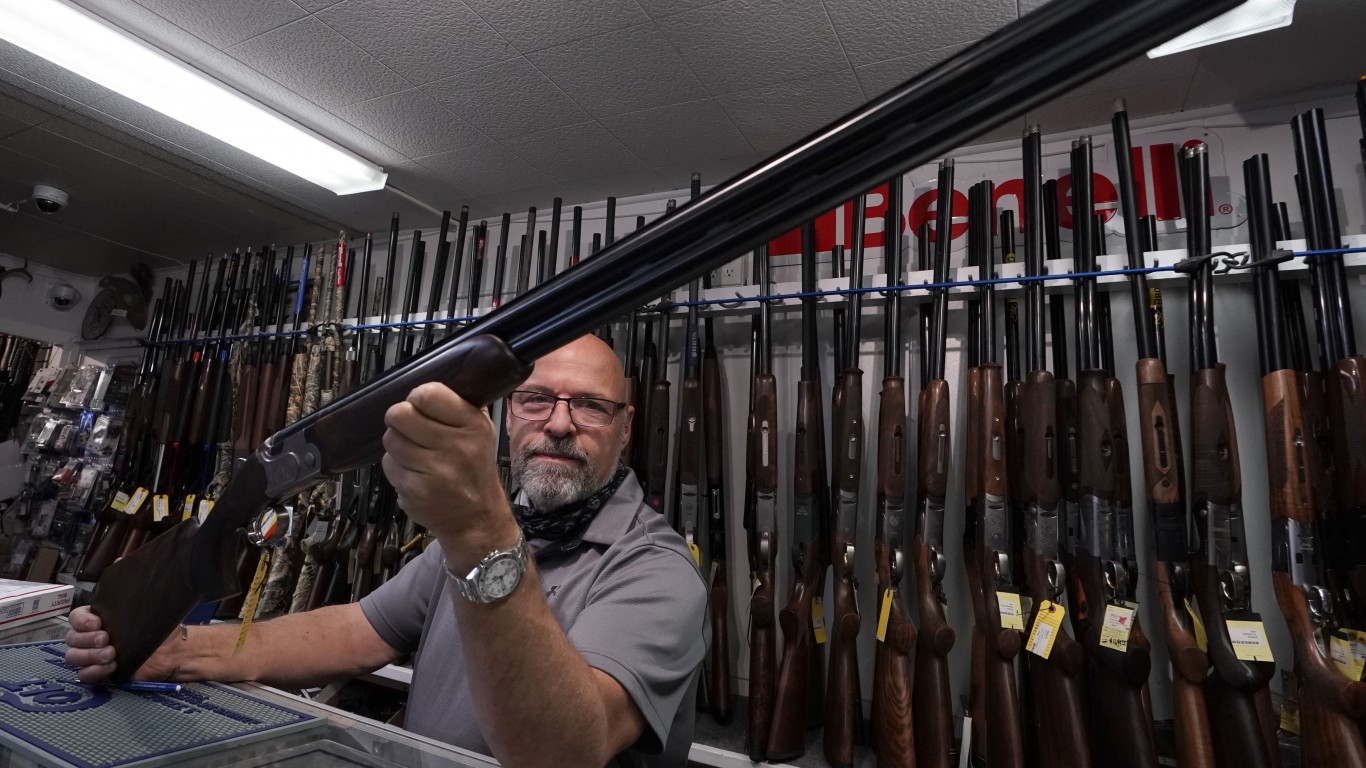
Published:
Last Updated:

Few issues in American politics are as polarizing as gun control. According to a recent survey from the Pew Research Center, 86% of likely Democratic voters say it is too easy to legally obtain a firearm in the United States, compared to only 34% of likely Republican voters. This partisan gulf in public opinion has meaningful practical implications.
Decades of political gridlock on Capitol Hill has largely prevented any significant new gun control legislation. While the federal government imposes some restrictions on the types of commercially available firearms and who can own them, state governments also have broad authority to set their own policies. This has resulted in a patchwork of state-level gun control regulations.
While some states have taken measures to strengthen background checks, raise ownership eligibility requirements, and ban assault weapons, most have done little to expand on federal gun laws. (Here is a look at the states where assault-style firearms are banned.)
Using the Annual Gun Law Scorecard from the gun violence prevention group Gifford Law Center, 24/7 Wall St. identified the states with the least restrictive gun control laws. The Gun Law Scorecard assigns each state a letter grade rating the strength of their firearm laws. Grades are current as of early January 2024 and range from “A,” for the states with the strongest laws, to “F,” for the states with the weakest. Gun laws noted in this story are also from Giffords Law Center. They are not exhaustive, however, and are only broad guidelines. Legal nuances can vary at the state and local levels.
Each of the 21 states on this list received a grade of “F.” None of these states, listed in alphabetical order, are in the Northeast and the largest share — 10 in total — are Southern states.
In most of these states, prospective gun buyers can legally bypass federal background check requirements by purchasing from a private seller, gun owners can carry concealed firearms in public without a permit, and law enforcement cannot take a firearm from a person in crisis. Gun control laws in these states tend to be minimal, and rarely go beyond child access prevention and ownership restrictions for domestic violence offenders and individuals with certain mental illnesses.
Gun control laws are designed to keep firearms out of the wrong hands and reduce the risk of deadly gun violence. In the absence of comprehensive control policies, rates of gun violence tend to be higher in the states on this list. Based on 2021 firearm mortality data from the Centers for Disease Control and Prevention, nine of the 10 states with the highest rates of deadly gun violence rank on this list. (Here is a look at the states where gun deaths are increasing the fastest.)


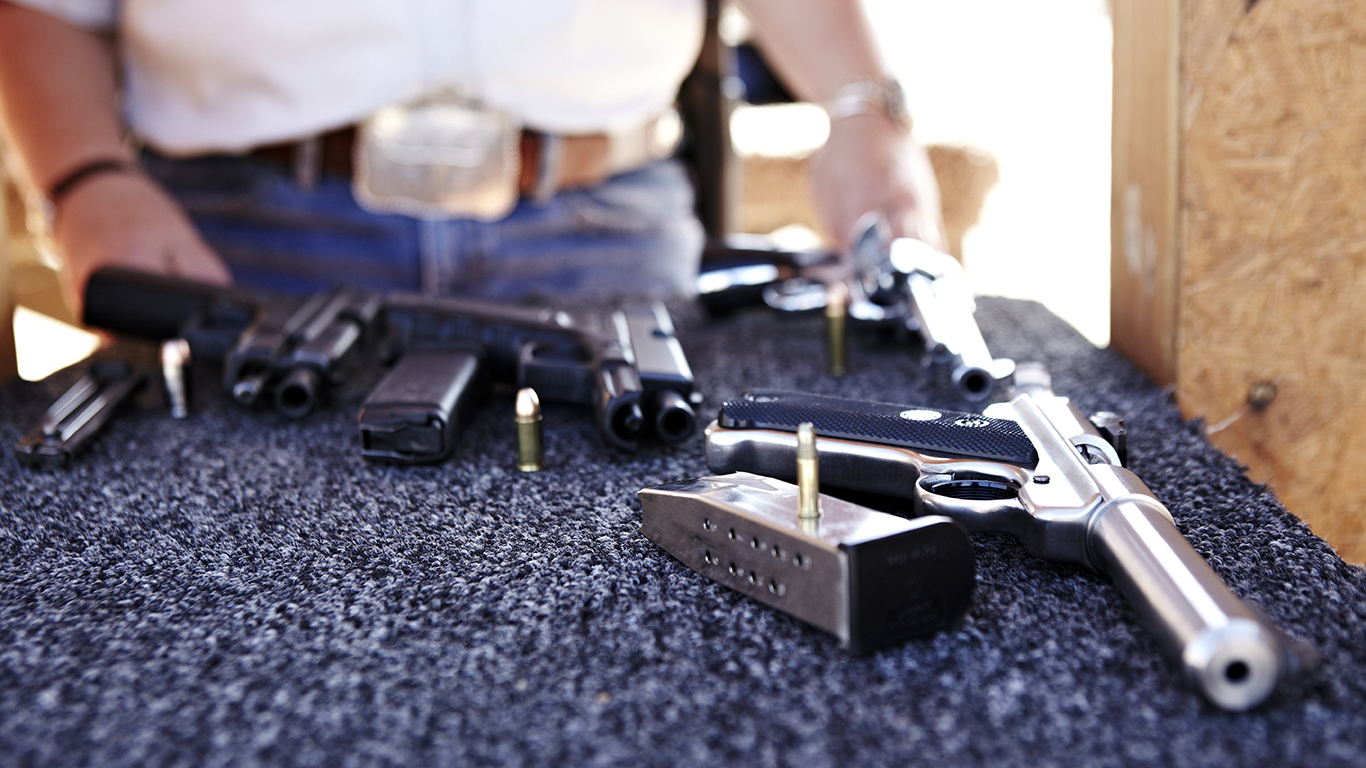



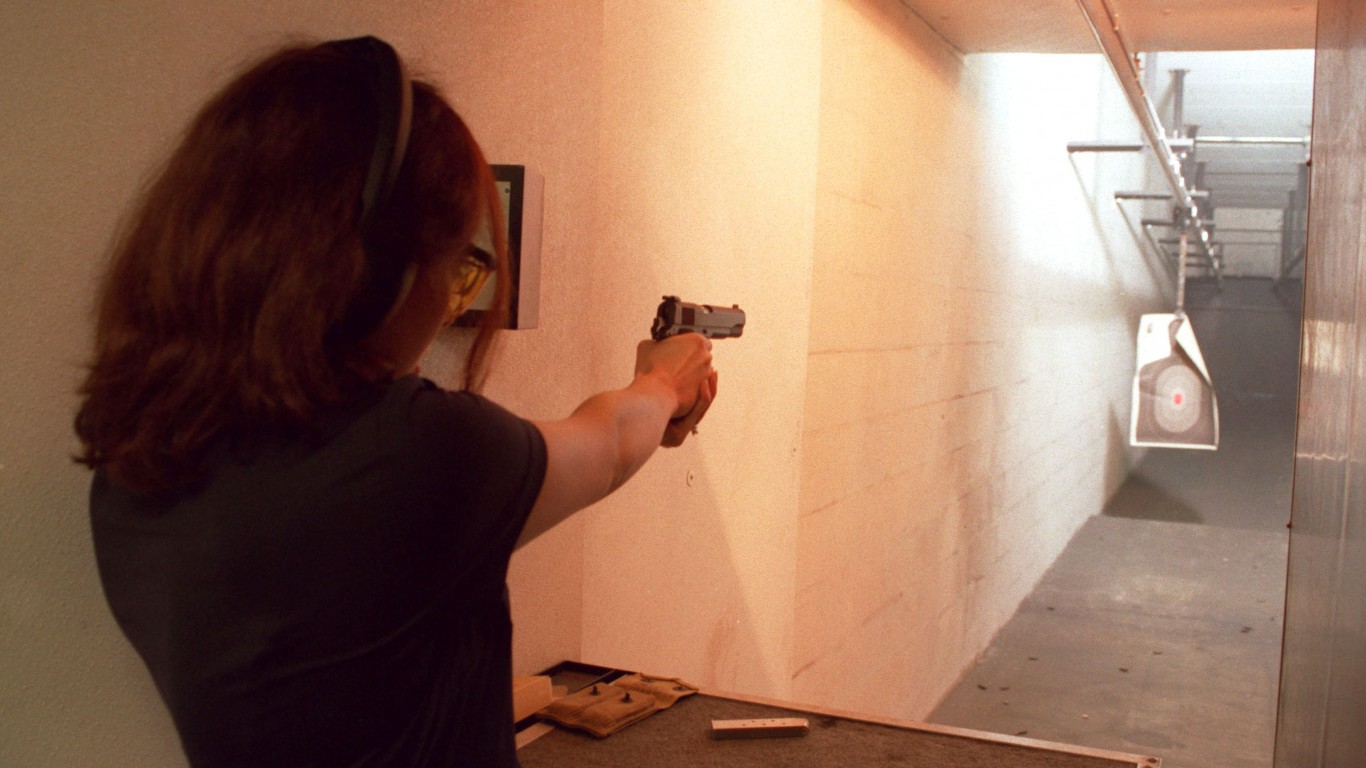
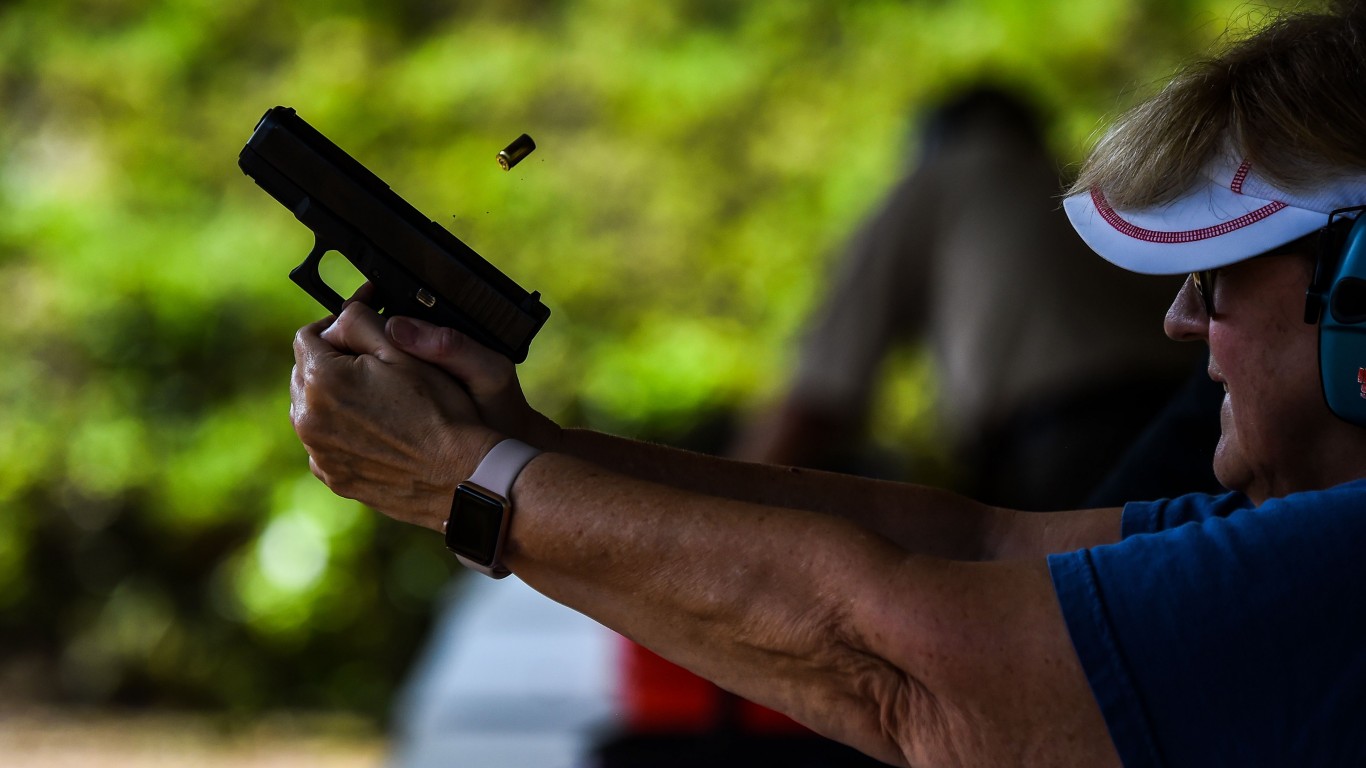
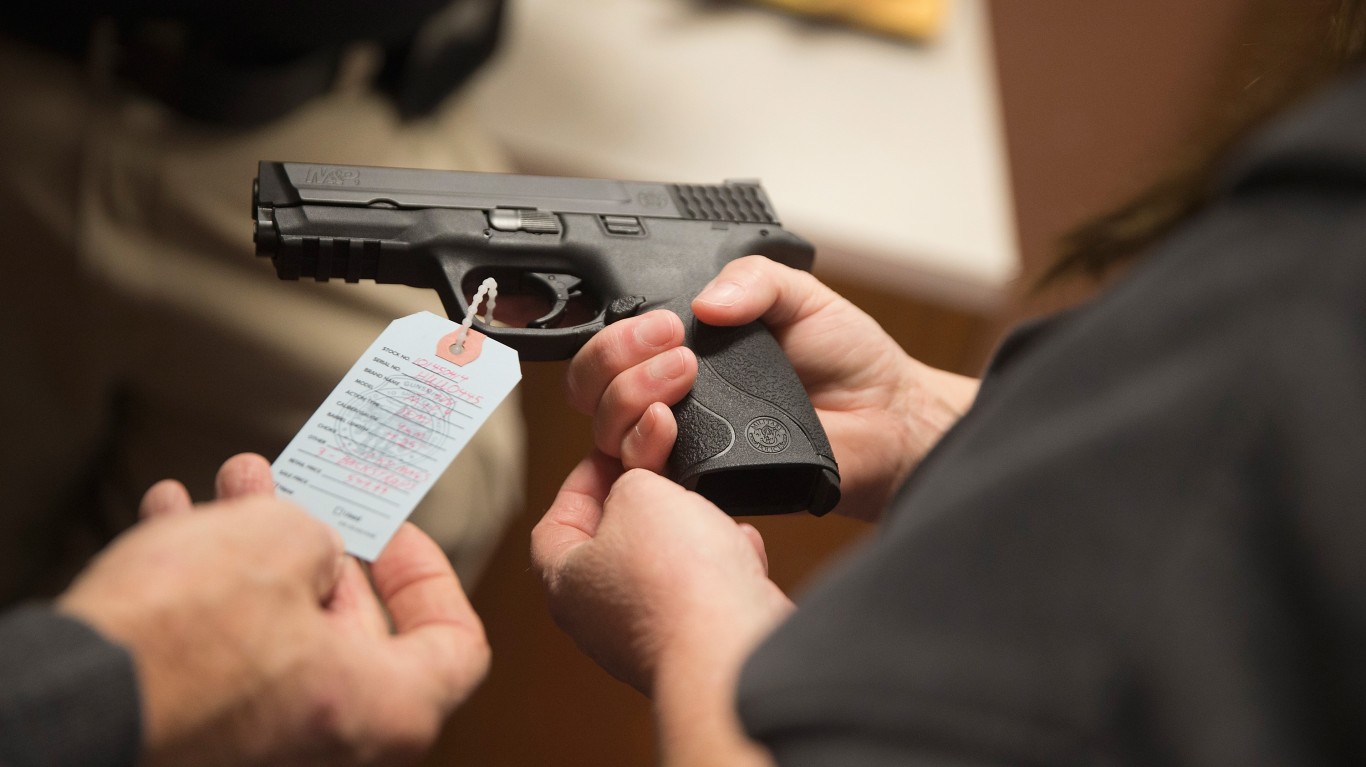








Choosing the right (or wrong) time to claim Social Security can dramatically change your retirement. So, before making one of the biggest decisions of your financial life, it’s a smart idea to get an extra set of eyes on your complete financial situation.
A financial advisor can help you decide the right Social Security option for you and your family. Finding a qualified financial advisor doesn’t have to be hard. SmartAsset’s free tool matches you with up to three financial advisors who serve your area, and you can interview your advisor matches at no cost to decide which one is right for you.
Click here to match with up to 3 financial pros who would be excited to help you optimize your Social Security outcomes.
Have questions about retirement or personal finance? Email us at [email protected]!
By emailing your questions to 24/7 Wall St., you agree to have them published anonymously on a673b.bigscoots-temp.com.
By submitting your story, you understand and agree that we may use your story, or versions of it, in all media and platforms, including via third parties.
Thank you for reading! Have some feedback for us?
Contact the 24/7 Wall St. editorial team.